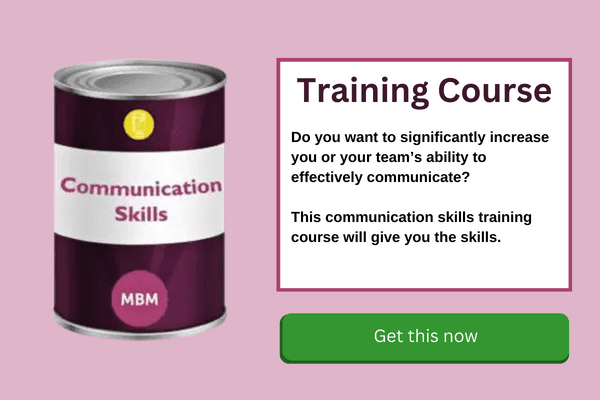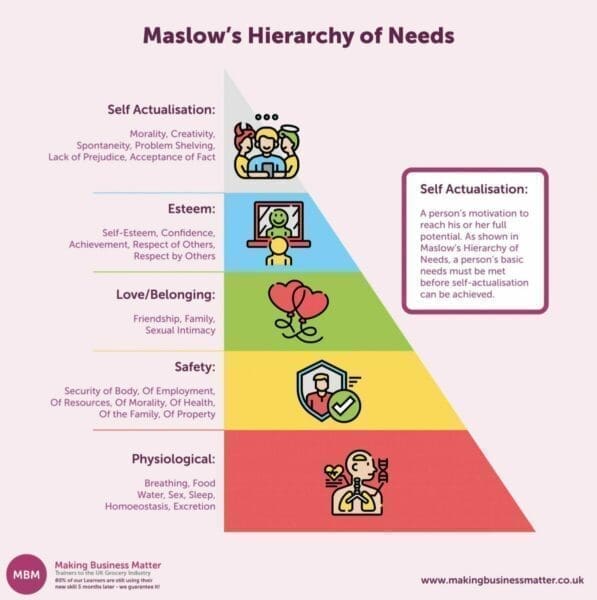Careless Talk Costs Lives
So then, Purpose versus Objective – do you know the difference? People often get them muddled up. Not me, you’re thinking. Good for you, pal!
But before you scroll on, here are some reasons to read this. Precise language helps engage people. Your audience needn’t work so hard. They empathise with you sooner, and you connect quicker.
This article’s primary objective is your better understanding of the difference between purpose and objective. We’ll do our best to help you achieve that. And at the end we’ll explain how to make it your objective to give your work a sense of purpose. So make it your goal now to read it all!

That’s What I’m Talking About
The context of the words we use is all-important, for people to understand what we’re saying. Purpose means different things in different contexts. An umbrella serves a purpose. You use it in the rain, to keep dry. I’m writing these sentences on purpose. They are intentional. People believe that if you have a purpose in life, you enjoy better mental health. That’s three different meanings, all related.
Oh, and while we’re here, don’t confuse purpose with porpoise, the marine mammal. Or papoose, a bag you use to carry a child on your back…
Seriously, though, objective can also mean different things, depending on the context. In the military sense, an objective is a position you want to capture, like Hamburger Hill in the ‘80s movie. We take an objective view of a situation to decide the objectives we must achieve to resolve it.

Purpose Versus Objective in Business
In the business context, your purpose is the reason you set up shop. You have a vision of where you want to get to, which you’re focused on working towards. And as the business grows, your purpose evolves. You set yourself specific objectives as you pursue it. These are particular, measurable and definable outcomes that you determine and work to achieve.
People talk about SMART objectives. The acronym spells out:
- Specific.
- Measurable.
- Achievable.
- Realistic and set in a.
- Timeframe.
So, a SMART objective might be to recruit two new people to your marketing team, starting in two months’ time. The purpose of doing so is to enable you to carry out the proposed marketing plan (Click on the image below to open a bigger version):

Staying with marketing, your marketing objectives outline what the end result of your marketing strategy should be. There are four main types: profitability, market share, promotion and growth. All these are definable, hence specific, and measurable. Hopefully they’re also achievable, realistic, in a given timeframe! Their main purpose is to guide your marketing efforts towards agreed milestones. And for maximum effectiveness, your marketing objectives should also align with your business plan and complement your all-embracing business goals.
It’s a similar story with sales objectives. These give your sales team a clear plan they must follow to help your company achieve its overall goals. Staying with the SMART acronym, each objective comprises specific, measurable action items that help sales people make sure their individual and team-wide goals are achieved, increasing sales and profit.
Purpose Versus Objective Versus Goal
We’ve just brought up a new word, goals. That needs defining before we go further.
Think of your goal as the point you wish to reach in an activity. Your goal is achieving a set of objectives. And your purpose is the reason you want to realise it. Goals always go one way, say the experts, once you set out to achieve them. But unlike a goal, purpose is deeper and broader, and gives these goals direction.
And here’s another thing. In the words of Tony Robbins, when your goals remain unfulfilled, they probably weren’t SMART goals. So for best results, make sure they are!
Sticky Learning ® is 7 times more effective than 1-day training courses. Plus, you will get a Chain of Evidence proving your Return on Investment. Discover soft skills training that changes behaviours long term.

Purpose Versus Objective in Research
Say you’re in new product development. The purpose of your work is to take your brand in new directions and win a new generation of consumers. Your immediate objective is test an agreed set of concepts over the next week, contributing to your development goal for this quarter.
Here’s another example of purpose versus objective. Say you’re working from home part of the week, now things have stabilised in the pandemic and are more predictable. Your purpose today is to turn your garden shed into an office. You will have various objectives in doing so. One might be, moving a coffee machine into the shed. This is a clear objective. You know the coffee machine you want in there. And you will know when you’ve moved it, and so achieved the objective.
Purpose and Objectives are Good for Your Health
As we said earlier, it’s widely believed that people with a purpose enjoy better mental health. Having a purpose, and objectives to achieve towards it, is good for us. There’s solid neuro scientific evidence to support this. Besides benefitting our mood and motivation, purpose can also make us more resilient to infection.
The famous Austrian neurologist Victor Frankl reckoned human nature was motivated by the search for a purpose in life. But you needn’t be as brainy as him to work that one out. We all feel healthier and happier when we’ve something interesting to do. That’s because we are self-actualising, working our way up Maslow’s hierarchy of needs and hopefully getting nearer to fulfilment.

You’re an Important Part of the Project
As we said initially, this article’s primary objective is your better understanding of the difference between the terms purpose and objective. And some other related words.
So far we’ve talked mainly about purpose, objectives and goals in the sense of personal plans. When we use these terms to discuss projects, the meanings are slightly different. It’s down to the context again. The purpose of a project is the reason you’re doing it. The objectives are clear, measured points you want to reach through defined activity. The goal is the position you will achieve by fulfilling these objectives. And the scope represents the boundaries and limitations of the activity, which you need to determine at the outset.
Objectives Versus Scope
As we’ve established, objectives are predetermined results that you direct your efforts towards, in your activity. The scope of the activity is the totality of outputs, outcomes and benefits, and the work needed to produce them.
How you lead your team to realise your purpose, objectives and goals and explain the scope is down to you. You will need to know about the different leadership styles, and judge which ones work best for you. Being a situational leader offers maximum flexibility. You’ll find plenty of useful articles about leadership at Making Business Matter.
Let’s Try This Another Way
Sometimes it’s good to consider different perspectives. So, another way to describe purpose is a sustained, reasoned outcome that you aim for to achieve success. Fulfilling your purpose can involve having long-term goals, like when it comes to measuring your progress to realising career ambitions. And that is a process that can take years, even decades.
By contrast, objectives tend to focus on setting and achieving short term goals, to reach your bigger goal. To bring scope into our conversation again, the scope of your purpose can be broad and abstract. It can centre on ideas and business values, which can change and evolve. By contrast the scope of your objectives can be narrow, short term, focused and precise.
Talk is Cheap, But People’s Time is Expensive
The Purpose of Meetings
People have meetings to:
- Pool and develop ideas.
- Plan activity.
- Solve problems.
- Make decisions.
- Create and develop understanding.
- Encourage enthusiasm and initiative.
- Provide direction.
- Create a common purpose.
Being clear about your purpose and objectives when you interact with people means you’re more likely to achieve your desired results. Or at least, you’ll be a step closer.
This is particularly true in meetings, whether online, face to face or phone. Let’s look at some practical aspects.
Why are Meeting Objectives Important?
- Clearly define your goals.
- Provide structure to meetings.
- Encourage teamwork.
- Increase your personal confidence.
- Manage your time effectively.
- Generate ideas about specific topics.
- Measure results.
- Identify your desired outcome.
We said at the start that using language precisely about your purposes and objectives helps engage other people. You hold their attention longer. Your clarity means they needn’t work so hard to understand you, especially if you all have different ideas. Other people will empathise with you sooner, and co-operate creatively towards shared goals. Whether you’re leading or participating in a meeting, knowing your objectives and focusing on them shows you’re focused and builds your personal presence.

What are the Purpose and Objectives for This Meeting?
Meetings fall into different types. Knowing what type of meeting you will have will help you be clear about the purpose and objectives.
- Planning:
A meeting involving planning could have various objectives, for example
- Setting sales targets.
- Defining the training programme.
- Agreeing activity to make the business more sustainable.
- Implementing our diversity policy with specific, visible activity.
- Moving the business to a digital platform.
- Opening new premises.
With each of these, there is a sequence of activities that you must plan.
- Problem solving
- Addressing issues that need to be resolved, with the GROW model.
- Overcoming division between different groups and enjoying the benefits of equality.
- Coming up with a compromise for a conflict between employees.
- Arriving at solutions for issues arising in training, using the Gibbs Reflective Cycle.
- Encouraging managers to be the first point of contact for employees with wellbeing issues, using listening skills.
- Improve employee retention, by managing stress.
With these conversations, unlocking the problem is more likely to result in a lasting solution, with transferable learnings.
Check the links to our content, there to help you achieve your objective of establishing how to solve common problems.
The big business decisions tend to be made in dedicated meetings. The objective for these meetings is agreement on the items on the agenda. Their purpose is to enable the rest of the business to move forward and detailed planning to take place.
- Building morale.
After difficult times, such as lockdowns and long periods of working from home, you may need to boost team morale. Whatever caused the low morale, leaders and managers need to be proactive. This means accepting there are things you can’t do anything about, but you can decide how you respond. Meetings about boosting team morale can have objectives such as:
- Finding new ways to recognise and celebrate team achievement.
- Creating a strategy for honouring individual success.
- Planning the staff Christmas party.
Yes, this is business, but it needn’t all be grim!
Writing Meeting Objectives Makes Everyone’s Life Easier
Once you know the purpose of your meeting and what your current objectives are, you can think about the objectives for the discussion. In plain English, think beforehand what you want to have achieved at the end:
- Do you need to collect status reports and go through them?
- Are you making plans, or coming to a solution about specific issues, with your team or your colleagues?
- Do you need to draw up a plan of action on a particular issue?
- What unified decisions do you need to reach in the meeting?
- Do you want to generate a list of ideas or goals, and if so, what about?
If you can be clear about all these questions, you can write your objectives in advance. For best use of your colleagues’ time on the day, share the objectives with them beforehand. This will ensure only the really necessary people come to the meeting. So you’re not wasting anyone’s time.

And Finally: Make it Your Objective to Find a Sense of Purpose at Work
Do you find yourself getting frustrated because you’re making money, but not making an impact? Ifb so, make it your objective to find a new sense of purpose in your work.
Life is short, and anything can happen, as the pandemic has shown us. You owe it to yourself to have a career where you have a sense of purpose. Don’t leave it up to your employer or your team to give you that, chances are they won’t! It’s up to you to define and realise your purpose at work.
Warning Signs That You are Bored in Your Job
- Spending your time doing private tasks.
- Feeling under stretched.
- Pretending to be busy.
- Feeling tired and uninterested.
- Finding work meaningless.
- You could complete your tasks faster than you actually do.
Top Tips to Find Your Purpose at Work
- Know what really motivates you.
- Analyse your personal goals and find a company that supports them.
- Discover ways you can help make your workplace better.
- Assign personal performance metrics to your working life that really matter to you.
- Mentor, coach and help others.
Find the Right Mind Set
This final take out is particularly important. When you have a sense of purpose at work, you feel passionate, innovative and committed. You have a purpose mind set. If you’re focused on your career, you have a career mind set. But what if you lose your job? If you do your work for the money and not much else, that’s a job mind set. If you’re spending over half your time in a job mind set or career mind set, stop. You need more. Make it your objective to find new ways of working that will give back your sense of purpose. You won’t regret it.




